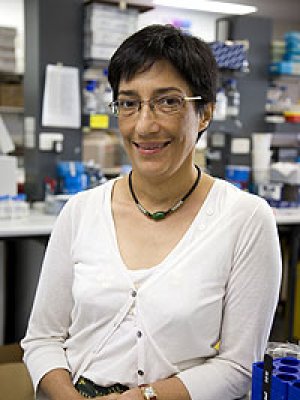
Vaccines for cancers, better pain relief and getting people off the couch and exercising are some of The University of Queensland research programs given a multi-million dollar boost today.
Three UQ research teams will receive almost $22 million as part of the $108 million National Health and Medical Research Council 2010 Program Grants that are aimed at giving scientists the ability to expand the scope of their research. UQ was awarded more than 20 percent of the national total.
Professor Ranjeny Thomas’s (07 3240 5365) team at UQ’s Diamantina Institute for Cancer, Immunology & Metabolic Medicine received $10.13 million to work on vaccines for cancer, chronic infections and autoimmune diseases such as diabetes.
“There is a large unmet need for effective solutions with fewer side effects in these diseases, which cause a high disease burden in our society,” Professor Thomas said.
Professor Neville Owen (07 3365 5528), who leads the Cancer Prevention Research Centre in UQ’s School of Population Health, received $5.39 million to examine ways to increase physical activity in an increasingly less active society.
“The majority of Australian adults spend most of their waking hours sitting: at home, at work and in their cars,” Professor Owen said.
“This leads to weight gain and to diseases of inactivity particularly diabetes, heart disease, cancer and depression.
“Our research will measure sitting time and the physical activity in people's daily lives, what factors encourage inactivity, and how to increase activity levels, especially among the ageing baby boomer population.”
Associate Professor Richard Lewis (07 3346 2984), from UQ’s Institute for Molecular Bioscience, has received $6.36 million to develop new drugs to treat chronic pain.
“The goal of our research is to improve treatments for pain, especially persistent pain, which remains a poorly managed global health burden,” Dr Lewis said.
“We are investigating the venom from animals such as cone shells to develop a new class of pain killers that can treat persistent pain.”
UQ’s Deputy Vice-Chancellor (Research) Professor David Siddle said the three grants would fund work that had the potential to reshape the health of Australia.
“Work by our outstanding researchers such as Professor Thomas has the potential to revolutionise the way we treat cancer and disease,” Professor Siddle said.
“In much the same way that many diseases were controlled last century by the use of vaccines, the new generation of vaccines could do the same this century.
Media: Andrew Dunne at UQ Communications (07 3365 2802 or 0433 364 181).
.jpg)

